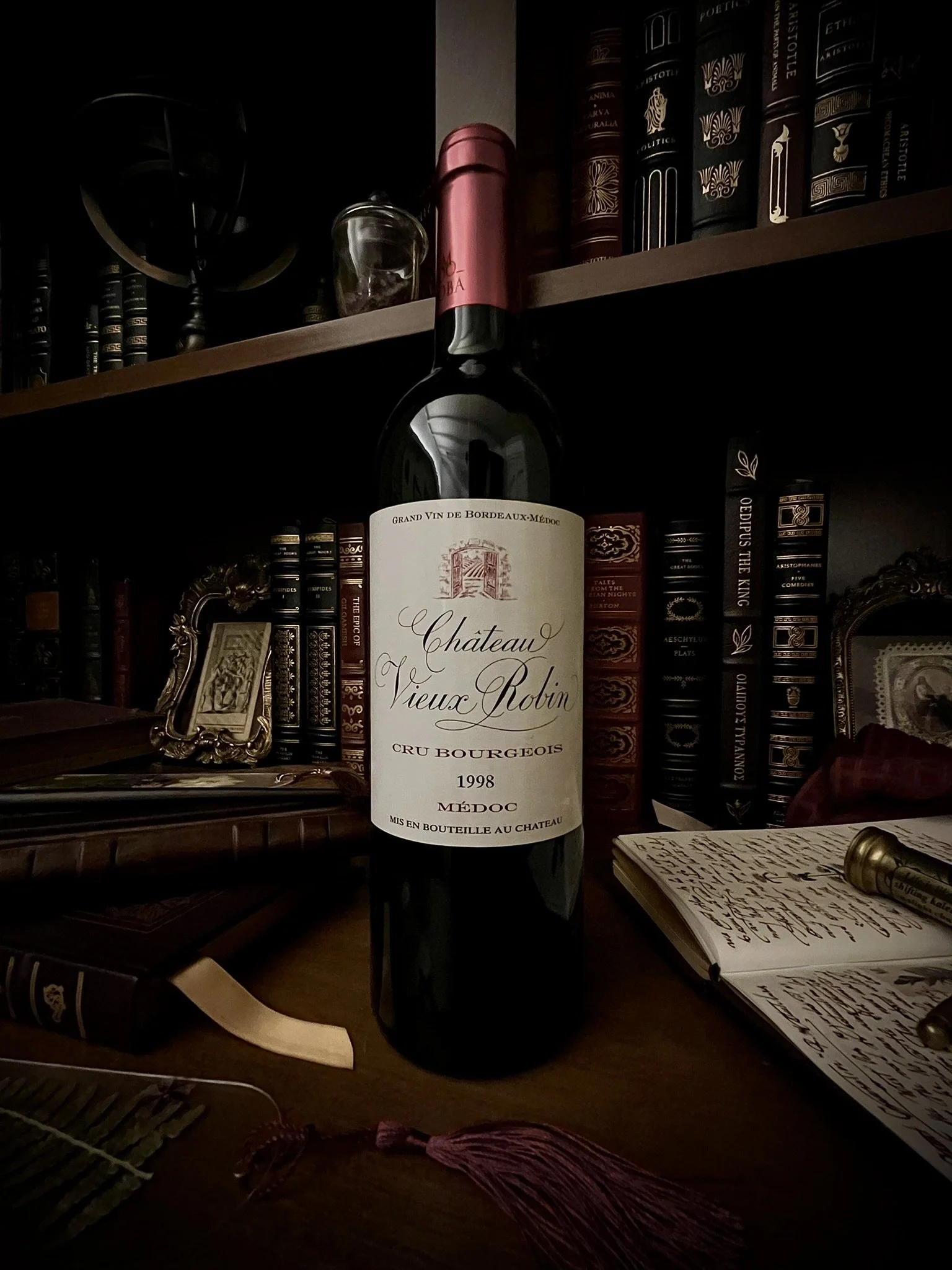8e Pensée: The Elegance of Decline: When a Wine is “Past Its Peak”
1998 Château Vieux Robin, Cru Bourgeois, Médoc, which accompanied the writing of this reflection.
There is a moment in every wine’s life when it stands at its peak: its structure and fruit in perfect harmony, a fleeting equilibrium before time begins its gentle undoing. But this moment is not the same for all wines. A fresh and lively Muscadet peaks in its youth, vibrant with the energy of a spring morning, while a noble Bordeaux takes decades to unfurl, its complexity deepening with the patience of time. Some Burgundies crest in a moment of breathtaking beauty, delicate as a fading rose, while a vintage Port endures, carrying its richness far beyond expectation.
So, too, in life. Some souls blaze early, their brilliance brief but unforgettable, like Keats’ lament in To Autumn:
"Where are the songs of Spring? Ay, where are they?
Think not of them, thou hast thy music too,"
…reminding us that beauty is not confined to youth, that autumn has a richness all its own. Other lives take time to unfold, needing years of experience before their true depth is revealed. Some remain strong well into their later years, while others, like an old wine slipping past its prime, soften into quiet reflection. We are taught to celebrate the peak, to measure success by that singular moment of perfection. But wine, in its wisdom, teaches otherwise.
To open a wine “past its peak” is to encounter time itself - not in theory, but in taste, in scent, in the slow fading of what once was. The color shifts, the edges tinged with the patina of age, like parchment kissed by candlelight. The aromas, once bold with fruit, have softened, revealing the subtler whispers beneath - dried leaves, worn leather, the distant memory of summer berries now mellowed into autumn’s hush. The palate, once structured and sure, begins to loosen, its bold confidence replaced with something quieter, more contemplative.
And yet, there is beauty in this. A wine past its prime is not a failure - it is a testament to the journey it has taken. It speaks not the regret of lost potential, but of the grace in letting go - of the beauty of impermanence. The boldness of youth has given way to a different kind of poetry: one of reminiscence, of softened edges, of quiet tenderness. Wordsworth understood this tenderness in aging, writing:
"Though nothing can bring back the hour
Of splendour in the grass, of glory in the flower;
We will grieve not, rather find
Strength in what remains behind."
This is the lesson of an aged wine, of a life well-lived: to appreciate not just the moment of brightest glory, but the echoes that remain, the softened contours of time’s embrace. It reminds us that the summit is not the only thing worth savoring. Sometimes, what lingers - what remains even after time has done its work - is just as worthy of reverence, of appreciation.
And so, as the glass empties and the last notes fade, let us raise a toast: not just to the peak of the journey, but to what lies beyond it: the inevitable descent from the summit. To the beauty in the unfurling of time, to the wisdom in age, and to the grace of knowing when to savor, when to let go, and when to simply be.
"À la vie, à la douceur du temps, et à tout ce qui demeure."
